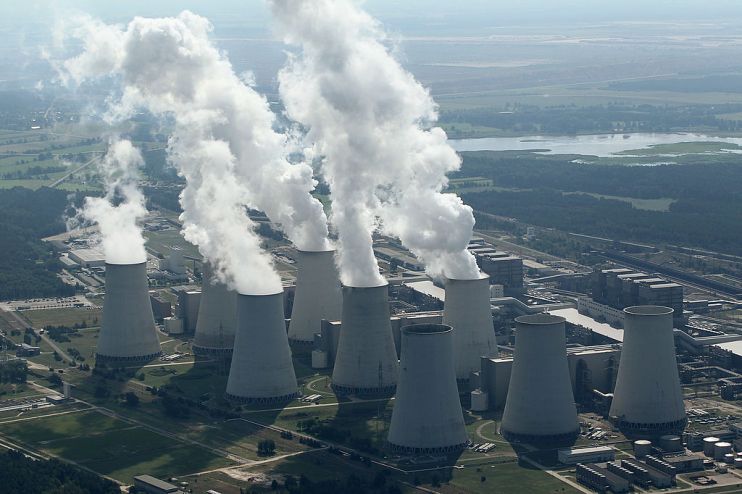With 2023 the world’s hottest year on record, business must take accountability on climate change

2024 must be the year we turn a corner on climate change, and businesses can’t afford to not take part, writes Rich Gilmore
Last week we learnt that 2023 was the world’s hottest year on record.
Concerns about the temperature data from both the Met Office and the EU’s Climate Change Service comes as we have faced worsening flooding in the UK, wildfires across north America and prolonged droughts in east Africa.
This extreme weather poses a risk to lives and livelihoods in the UK and around the world. It presents business and the City with serious challenges, but also opportunities to shape the future for the better.
In this General Election year, while there may be some differences on the pace of change required, there is a political consensus that businesses need to play their part in the solution.
Regardless of the election result, 2024 must therefore be a year where we turn a corner and take action to reduce the carbon emissions which produce climate change.
The transition to net zero will not be easy. We do not yet have cost-effective alternatives to all the processes where we are dependent on fossil fuels.
But while all businesses should be seeking to reduce emissions in absolute terms, the carbon offset market allows businesses to offset fossil fuel usage where a full stop is not currently possible.
This is done by buying carbon credits from projects proven to remove, or avoid, an equivalent amount of carbon dioxide from the atmosphere.
In practice, this can be projects which see forests or mangroves grown to absorb carbon, or replacing high-polluting cookstoves in the developing world with cleaner, more efficient technologies.
Businesses are already realising the merits of voluntary carbon markets; in fact eight of the world’s 10 most valuable brands including the likes of Apple, Google and Microsoft already use carbon credits, or have committed to do so.
This mindset also leads to a virtuous circle of sustainability. Studies have shown that companies which participate in voluntary carbon markets are also 1.8 times more likely to be reducing their own emissions year-on-year.
It makes sound financial sense to invest early, as the costs of carbon credits are projected to rise precipitously in the coming years.
The recent UN COP28 Climate Conference in Dubai was a pivotal moment for the voluntary carbon market, with enhanced focus on high integrity, high quality carbon credits.
A growing number of global leaders and businesses are now recognising that the route to net zero cannot be achieved without carbon markets – including the United Nations, World Bank, WTO, UK government and the new Lord Mayor of London Michael Mainelli, all of whom have endorsed carbon credits as a crucial component in the transition to net zero.
Across the pond, the US State Department announced it was partnering with businesses like Mastercard, Bank of America, Morgan Stanley, and Walmart on its Energy Transition Accelerator. This will incentivise decommissioning fossil fuel assets and enhance clean energy deployment. We need to see similar commitment in the UK.
Carbon credits provide a once-in-a-generation opportunity to tackle climate change in a rapid, sustainable and cost-effective way. But in order for carbon markets to realise their full potential, efforts need to be increased. Ideally, we would see a doubling of the number of emissions being offset globally over the next year.
To prevent ever more havoc from extreme weather, 2024 needs to be the year everyone – governments, businesses and the community at large – lays the foundations for a future of sustainable growth.